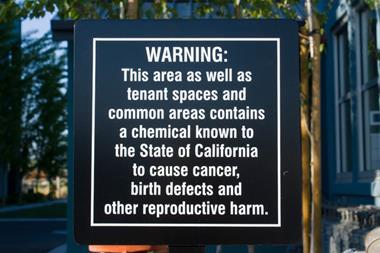The US Food and Drug Administration (FDA) is publicly opposing a recent court ruling that could require coffee sold in California to be labelled with a cancer warning because of the presence of the chemical acrylamide – a byproduct of the coffee bean roasting process.
Acrylamide is listed as a carcinogen under California’s Proposition 65, a law that requires businesses to notify consumers about chemicals linked to cancer and other serious health issues.
In March, a Los Angeles superior court judge issued a preliminary ruling that coffee companies had not adequately proven that the benefits of drinking coffee outweigh the risk of cancer posed by acrylamide, and so they must warn consumers in California that their products contain a carcinogenic chemical under Proposition 65. The judge finalised that ruling in May
The FDA commissioner, Scott Gottlieb, said he is ‘deeply concerned’ by this development. The agency notes that acrylamide can form in many foods during high temperature cooking, such as frying, roasting and baking, and it doesn’t come from food packaging or the environment. Despite animal studies linking high doses of acrylamide to cancer in animals, the FDA emphasises that current science indicates that coffee consumption does not elevate cancer risk.
In June, the California agency that administers Proposition 65 proposed to largely exempt coffee from a Proposition 65 cancer warning. Earlier this year, the drawn out legal dispute over cancer warnings on coffee led more than a dozen coffee companies to settle by agreeing to add labels on their drinks in California.

















No comments yet